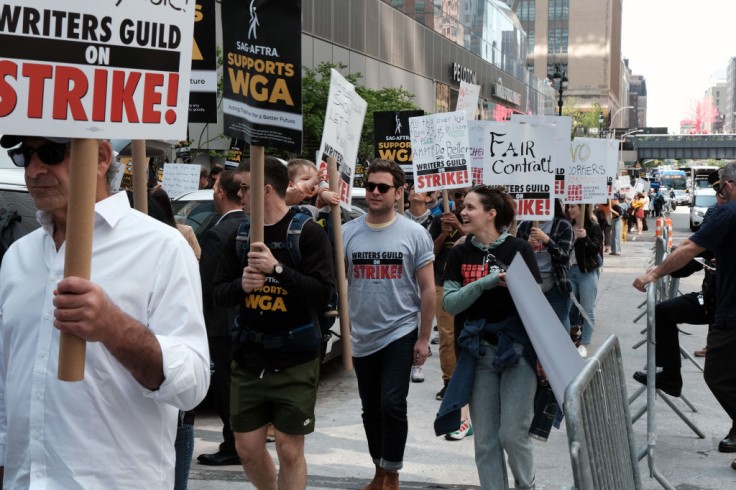One part of the Hollywood Strike might come to an end soon.
The Writers Guild of America (WGA) and the Alliance of Motion Picture and Television Producers (AMPTP) are reportedly close to an agreement that would signal the end of the former's strike.
The WGA went on strike against the AMPTP to protect the livelihoods of its members on the advent of streaming entertainment and the use of generative AI tools.

Closing Compromises?
Negotiations between the WGA and AMPTP seem to be going great. According to the sources of CNBC anchor David Faber (via The Verge), the two parties hope to finalize a new deal tomorrow.
This development follows the joint statement from both parties, which stated that they met on Sept. 21. This meeting was attended by Netflix CEO Ted Sarandos, Disney CEO Bob Iger, Warner Bros. Discovery CEO David Zaslav, and Universal chief content officer Donna Langley from the AMPTP's side.
For the WGA's side, the union's chief negotiator, Ellen Stutzman, and president, Donna Langley, are present in the Sept. 21 meeting. It is unclear if these same executives will be present at the parties' next meeting, which is scheduled for Sept. 22, though it is probable that they will.
Should a deal between the two parties be finalized at tomorrow's meeting, the WGA will probably end its monthslong strike, which began in early May. Despite the good news, however, Faber's sources reveal that if negotiations fall short again and a deal won't be finalized by tomorrow, the WGA's strike against the AMPTP and Hollywood will likely continue through the end of 2023.
Deadline's source mentioned that the two parties saw "incredible progress" during its Sept. 21 meeting, adding that such progress is the result "when principals get serious - things start moving."
Unfortunately, the same couldn't be said about the Screen Actors Guild - American Federation of Television and Radio Artists (SAG-AFTRA). As of press time, there is no progress toward ending the SAG-AFTRA strike, even when it is voting on authorizing a strike against the gaming industry.
According to SAG-AFTRA's announcement at the time, the extension of the Interactive Media Agreement didn't result in promising negotiations to have the companies involved address the "critical terms" its members in the video game industry need. These critical terms include the same rate increases as film and TV actors, job protection from AI, and a mandatory five-minute-per-hour rest period for on-camera performance capture actors.
A Review Of The WGA's Strike
The WGA's strike came as a result of its wish to put a new contract with the AMPTP with better arrangements. These arrangements include an upgraded health plan for writers and bigger earnings since they do a lot of work creating plots that make it possible to produce shows and movies.
Additionally, the WGA wants the implementation of regulations concerning the use of generative AI - a tool writers called a "plagiarizing machine." The regulations the WGA wants implemented would prohibit generative AI tools from being used to write, rewrite literary material for projects, or even be used as the source material.
Related Article : Video Game Voice Actors Might Join Strike Against AI









